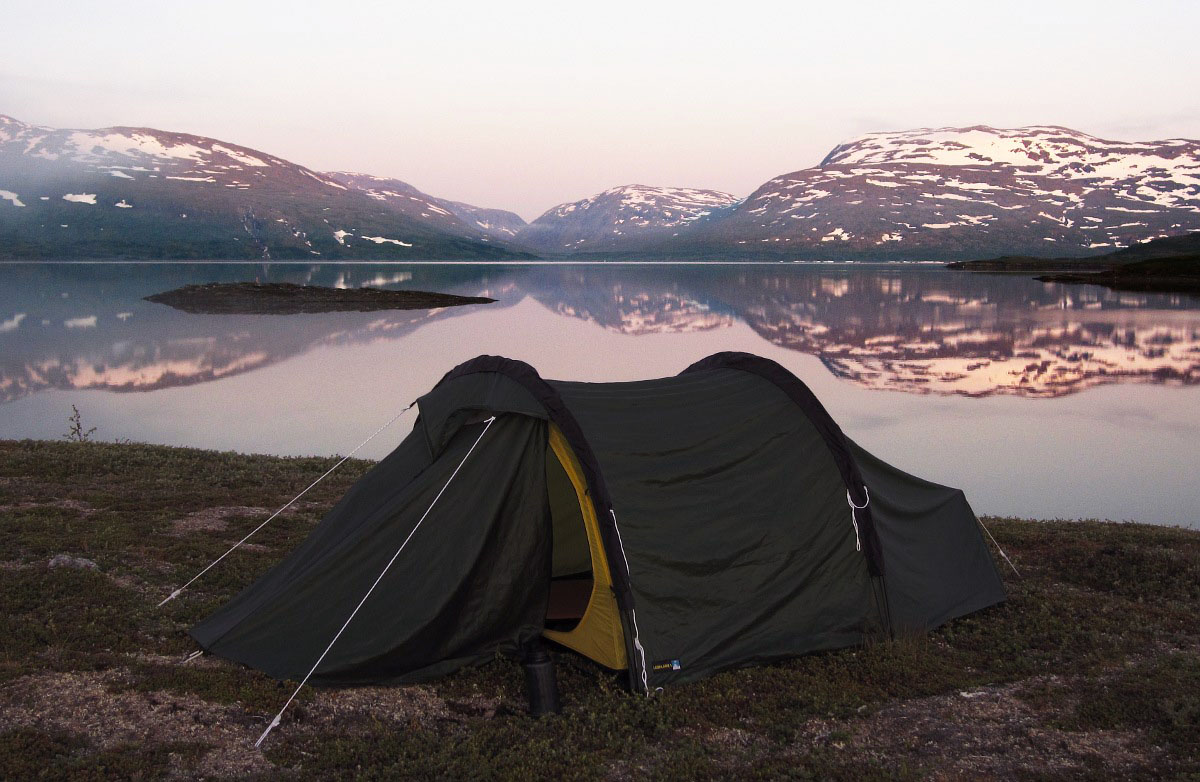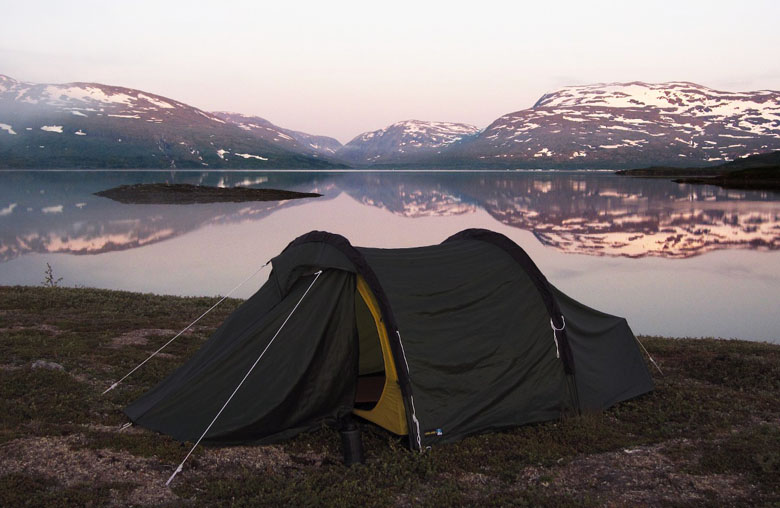

Norway has some of the most liberal public access and camping laws in the world, formalized by the Outdoor Recreation Act of 1957. They are great for Norwegians and travelers alike; below is background and what you need to know.
Friluftsliv: The "Open Air Life”
Norwegian writer Henrik Ibsen first used the term Friluftsliv in 1859 to describe the central role of nature to Norwegian culture, depended upon for recreation, rejuvenation, and restoring balance, among other things. Norwegians always have been drawn to the outdoors and spend much of their free time in the surrounding mountains, forests, and fjords. There is also a rich history of exploration beyond Norway’s borders, from the age of the Vikings to the expeditions of Roald Amundsen, the first person in history to reach the South Pole.
Allemannsretten: “All Man’s Right”
With the Norwegian zeal for nature, it’s no surprise that the country has pioneered the right of public access. The concept of Allemannsretten, firmly based in tradition and codified into law by the Outdoor Recreation Act of 1957, honors the access and right of passage through uncultivated land, regardless of ownership. The Act also establishes the right to camp freely on uncultivated land for up to two nights and longer in the mountains or more remote areas.
Cultivated vs. Uncultivated Land
Cultivated land is defined as “farm yards, plots around houses and cabins, tilled fields, hay meadows, cultivated pasture, young plantations and similar areas where public access would unduly hinder the owner or user.” Uncultivated land, on the other hand, is land that is not tilled or otherwise put to use.
According to the Act, any person is entitled “access to and passage through uncultivated land at all times of the year, provided that consideration and due care is shown.” Given the prominence of Nordic skiing, there is also a right of public access over cultivated land when it is frozen or covered in snow (provided that it does not unduly hinder the owner and not from April 30th to October 14th).
Regarding camping, you are permitted to pitch a tent for up to two days on any uncultivated land, no closer than 150 meters from an inhabited house or cabin. Permission is not required for longer stays in the wilderness unless it would cause damage or inconvenience. Camping is never allowed if it would harm a young or regenerating forest.
On the Spirit of the Law
Instead of focusing on specific language, abide by the spirit of the law and use common sense when deciding where to walk or camp. If there is a question about whether you are on cultivated or uncultivated land, it’s a good idea to move on and find a better place. Norway is sparsely populated and it’s not difficult to find open space.
From a broader perspective, this extremely liberal law, a product of Norway’s deep-dyed democratic impulses, is intended to give wide-ranging access to the countryside and wilderness. The law succeeds because the people demonstrate a great respect for nature and follow the principles and traditions on which it is based. If travelers abuse the rules or put pressure on the system in general, it may result in changes to everybody’s detriment (New Zealand, for example, is tightening its public access rules). Show your appreciation for how unique and wonderful Norway is by doing your part in keeping the right to public access intact.